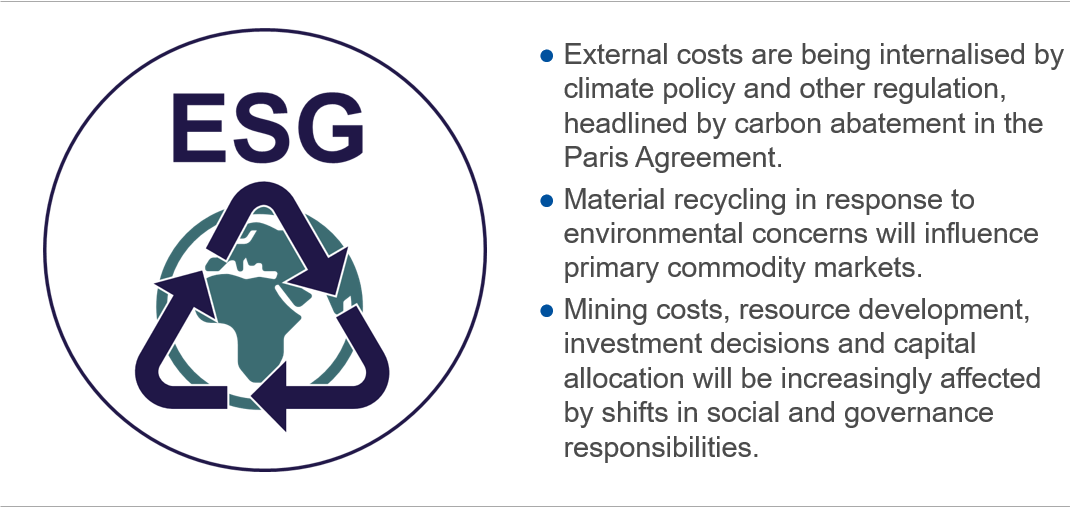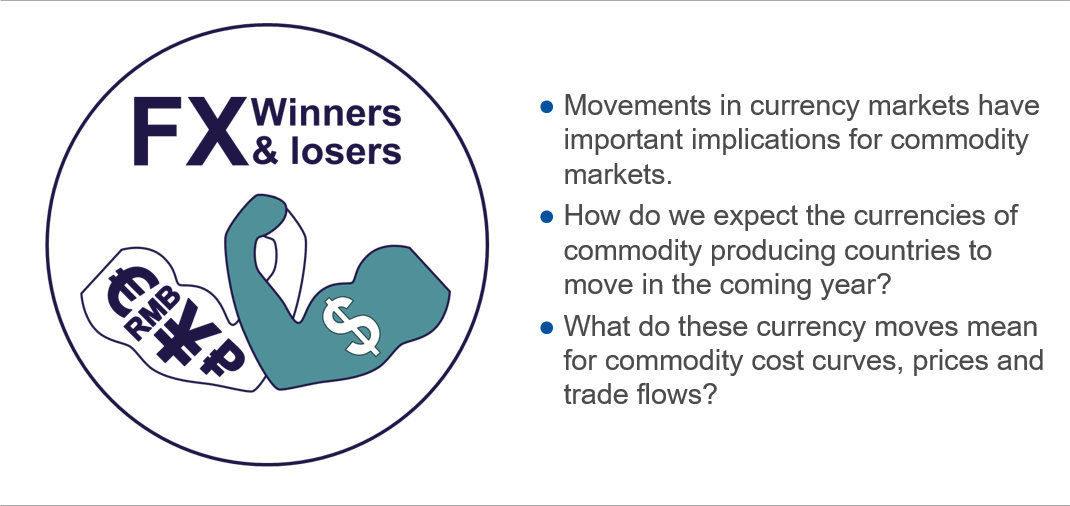Market Data

January 5, 2020
CRU: 2020 Macro Themes
Written by CRU Americas
The three themes which will run through CRU analysis this year: China’s economic re-balancing, FX currency movements, and Environmental and Social Governance.
2020 brings opportunities and challenges for commodity markets. CRU has drawn on conversations between our market experts and people from all parts of commodity market value chains—from miner to end-use consumer—and we have identified three themes that will be especially important in 2020.
China Re-balancing and Reform:

In the coming year, China’s economy will continue to re-balance away from investment towards consumption. 2020 is a critical year for China as it marks the end of the 13th Five Year Plan (FYP) and the start of the 14th FYP. It is an obvious time to review the health of the economy.
This theme will consider the economic cycle: Is China on track to deliver its “managed” slowdown? Or will the slowdown be faster due to domestic vulnerabilities or the U.S.-China trade war?
As well as assessing structural change: How fast will China transition towards consumption goods; and what are the implications for commodities demand?
ESG: CO2 & Paris Five Years On:

Environmental, Social and Governance (ESG) issues have risen to the top of the agenda for commodity and resource market participants and investors.
Many external costs are being internalized by climate policy and other regulation, headlined by carbon abatement in the Paris Agreement of 2016, with the crucial COP26 milestone in November 2020.
Material recycling and increasing scrap use is also a feature of carbon abatement, but there are other drivers which will also impact primary commodity markets. Additionally, mining costs, resource development, investment decisions and capital allocation will be increasingly impacted by shifts in social and governance responsibilities.
Whether seeking approval for a new operation or certification just to stay in business, companies face increasing public scrutiny, skepticism and examination of their social license to operate.
CRU will address these topics impacting commodity costs and supply/demand dynamics in 2020, a pivotal year in which the material impact of ESG issues on commodity markets will intensify further.
Foreign Exchange Movements:

Movements in currencies have important implications for commodity markets.
Over the past year the U.S. dollar has strengthened, while the currencies of many commodity producing countries – including China and Brazil – have depreciated. Currency fluctuations will have consequences for production costs, prices and trade flows. Short-term currency movements can shift markets in a different direction than the path implied by longer-term fundamentals.
What are our expectations for currency moves in the coming year? How might the depreciation of major commodity producing countries – such as the Chilean peso and the Chinese RMB – affect the cost curve?
How will changes in currencies influence commodity prices? And how will it impact import demand and commodity trade flows?
Request more information about this topic.
Learn more about CRU’s services at www.crugroup.com






